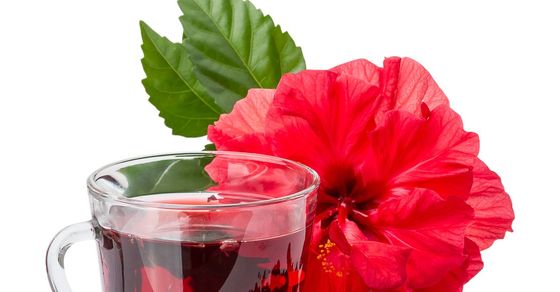Hypertension has been considered as a risk factor for various diseases including ischemic heart and cerebrovascular disease as well as chronic kidney disease.
Hypertension also accounts for increases in disability-adjusted life years and deaths worldwide. You may have heard of doctors cancelling certain surgeries because the patient’s blood pressure was not stable.
Yes, blood pressure levels can be managed by using modern medicines, but the long-term use of these drug regimens has been proved to have adverse effects on overall health.
What then, are the methods of managing hypertension with natural elements and foods?
Three key pieces of research on Hibiscus tea effect on Hypertension:
1. Harvard Health reports that a study showed hibiscus tea may help lower blood pressure. Another interesting cardiovascular benefit of this herbal tea is its ability to help decrease LDL (bad) cholesterol levels. A research review showed that consuming hibiscus tea or extract decreases bad LDL cholesterol and triglyceride levels. Now, that is a double bonus.
2. The researchers at the Mashhad University of Medical Sciences in Iran carried out a research study in July 2019 to evaluate the effect of different herbals on managing hypertension.
Researchers wanted to check how potent is the claimed antihypertensive effect of one of the herbs called sour tea or Hibiscus tea (Hibiscus sabdariffa) on stage one hypertension.
Patients with stage one hypertension who were diagnosed by a cardiologist and gave informed consent were included in the trial and divided into two groups.
The control and case groups received the same lifestyle and dietary advice for controlling blood pressure.
The case group received two standard cups of sour tea every morning for 1 month.
The blood pressure of both groups was documented at baseline and at the end of the study and the results were analysed using SPSS software.
There was a significant reduction in systolic blood pressure in both groups, but the mean reduction in systolic and diastolic blood pressure was significantly higher in the case group i.e., the group that had been treated with Hibiscus tea. The researchers concluded that using H. sabdariffa as sour tea two times a day can be effective in managing blood pressure in stage one hypertension along with lifestyle and dietary modification.
3. In another study carried out at the Jean Mayer USDA Human Nutrition Research Center on Aging at Tufts University, Boston (USA), researchers subjected consenting patients through a randomised, double-blind, placebo-controlled clinical trial that was conducted in 65 pre-hypertensive and mildly hypertensive adults, age 30-70 years, not taking blood pressure (BP)-lowering medications, with either 3 servings/d of 240-mL brewed hibiscus tea or placebo beverage for 6 weeks.
At 6 weeks, hibiscus tea was found to have lowered systolic BP (SBP) compared with placebo. Diastolic BP was also lower, although this change did not differ from the placebo. Participants with higher SBP at baseline showed a greater response to hibiscus treatment. Researchers concluded that daily consumption of hibiscus tea, in an amount readily incorporated into the diet, lowers BP in pre-hypertensive and mildly hypertensive adults and may prove an effective component of the dietary changes recommended for people with these conditions.
Here’s what Harvard research says about Hibiscus tea:
A word of caution: Harvard Health warns that you must avoid drinking hibiscus tea if you take the diuretic medication hydrochlorothiazide because the two may negatively interact. Hibiscus tea may also interfere with the effects of aspirin, and health professionals recommend they be taken 3–4 hours apart. Your doctor knows the best, therefore verify with your physician what is best for you.
Disclaimer: Tips and suggestions mentioned in the article are for general information purposes only and should not be construed as professional medical advice. Always consult your doctor or a professional healthcare provider if you have any specific questions about any medical matter.
Get the Latest health news, healthy diet, weight loss, Yoga, and fitness tips, more updates on Times Now
